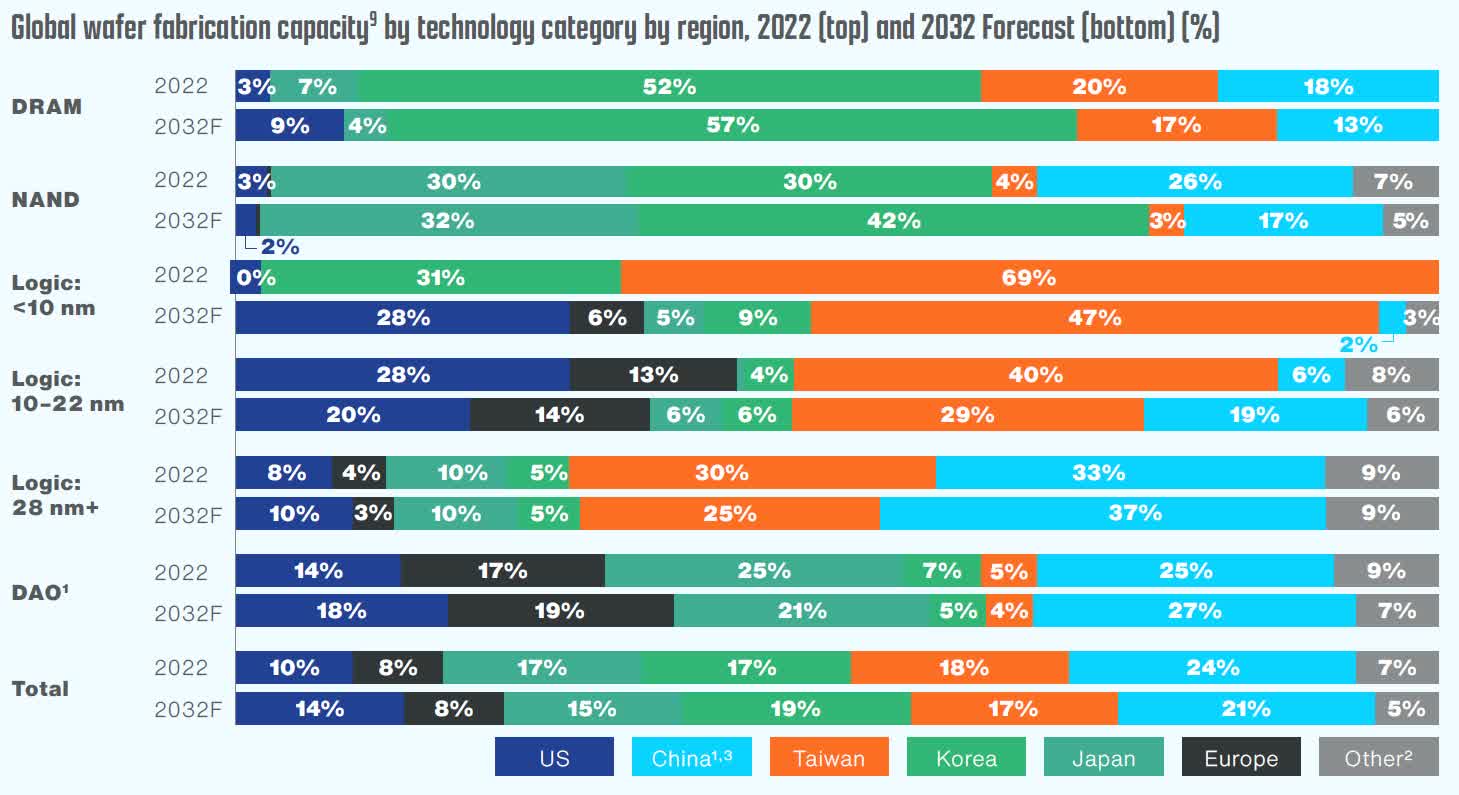The big picture: The Chips and Science Act is on track to achieve its intended goal of boosting domestic semiconductor manufacturing. According to a fresh report from the Semiconductor Industry Association (SIA), approximately 28 percent of all advanced logic chips (those made on processes newer than 10 nanometers) will be produced in the US by 2032. Europe and Japan are also forecasted to collectively push their advanced chip production to around 12 percent during the same period.

Put another way, the US is expected to grow its fab capacity by 203 percent between 2022 and 2032.
Assuming nearly a third of the world's advanced chip production in just one decade is a significant shift, and there are inevitably going to be some losers as a result. Per the SIA, Korea and Taiwan are expected to be hit the hardest.
Korea's advanced chip production is forecasted to dip down to just nine percent by 2032, from 31 percent in 2022. Similarly, Taiwan's share could fall 22 percent over the same period, from 69 percent in 2022 to just 47 percent in 2032.
Zooming out to look at the bigger picture, the US was responsible for just 10 percent of global chip production (of all kind) in 2022. That figure is expected to climb to 14 percent by 2032. Without the Chips Act, the US would likely have seen its total chip production decline to just eight percent by 2032.
Rival China, meanwhile, is forecasted to account for just two percent of advanced chip production by 2032. Neither country had any capacity to make such chips as of 2022.
The US Chips Act was signed into law in August 2022, and set aside $39 billion in subsidies specifically intended to support chip manufacturing within the US. A handful of awards have already been doled out with recipients including Intel, Taiwan Semiconductor Manufacturing Co., and Samsung. As of late April 2024, about half of the act's financial incentives had already been accounted for.
Image credit: Pixabay
More than a quarter of advanced chip production to occur on US soil by 2032
